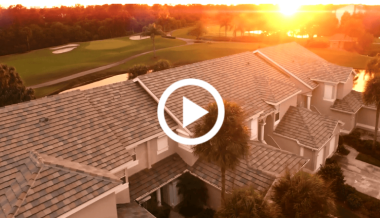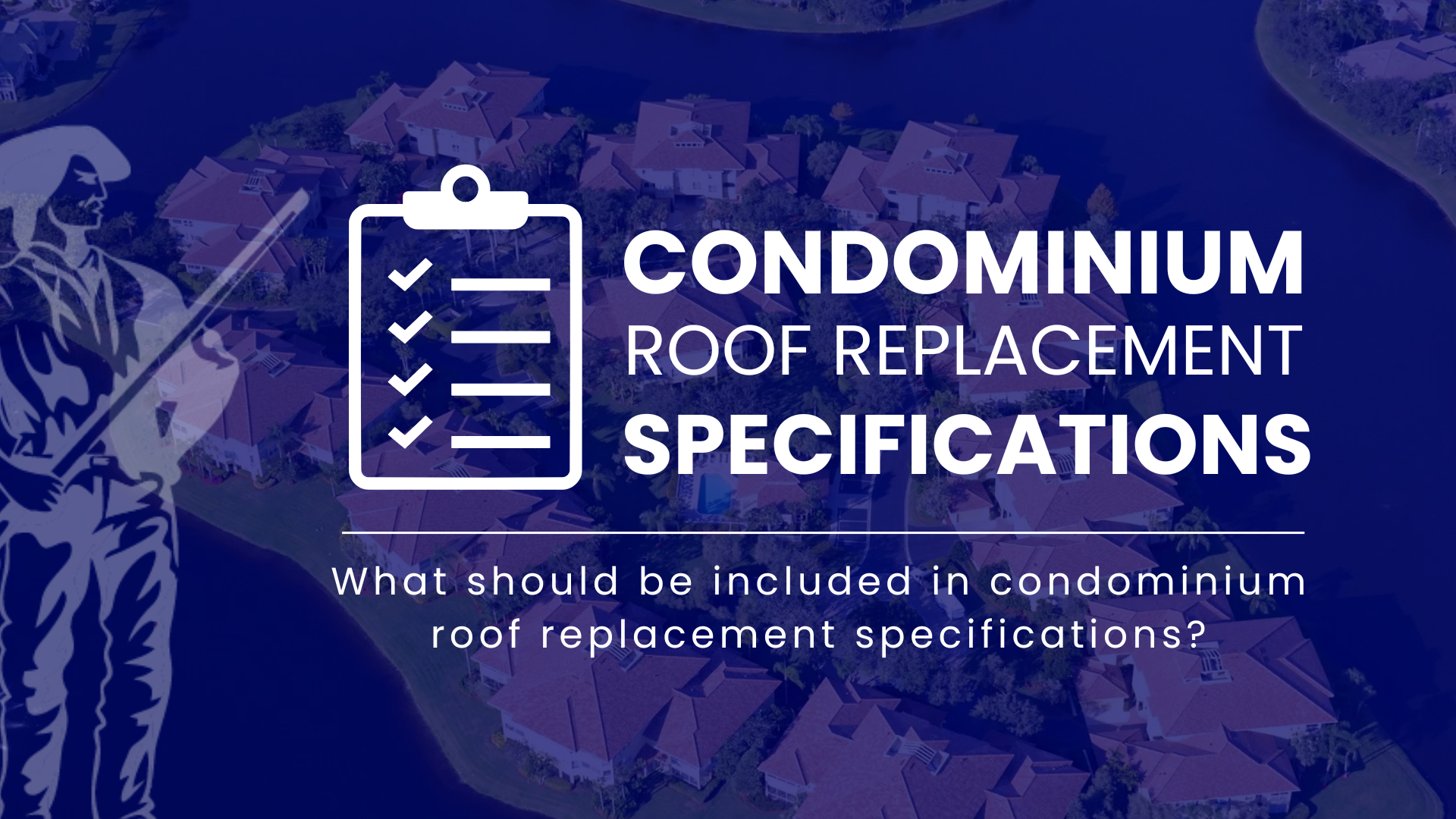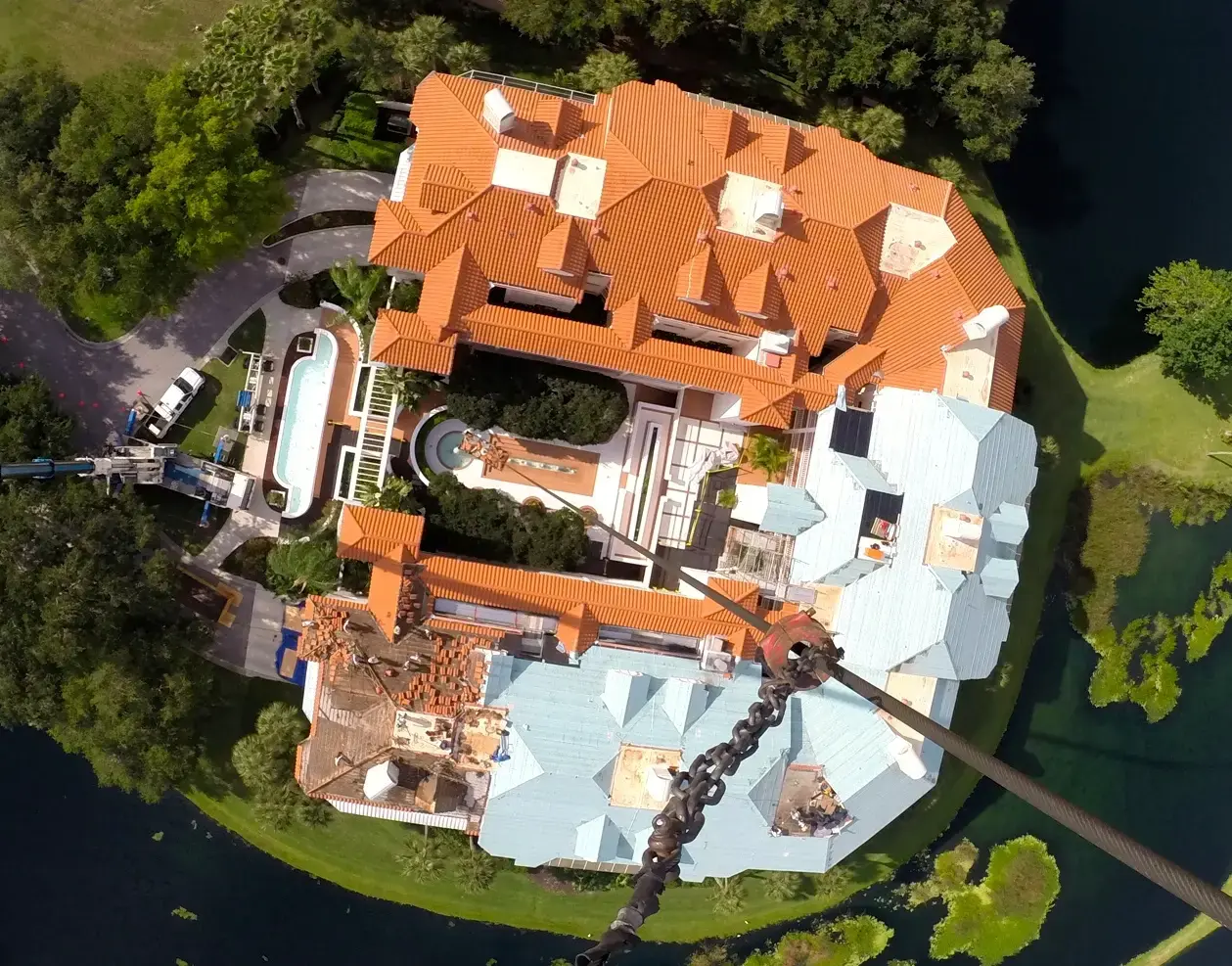When your association begins planning for a Florida condo roof replacement, one of the most important (but often overlooked) steps is developing a roofing specification from a qualified engineer or roofing consultant. This document outlines some of the scope of work that condominium roofing contractors must follow when bidding. It’s an example of how a roofing consultant or engineer will structure your blueprint for apples-to-apples bid comparisons, long-term performance, and accountability.
Without a clearly written spec, you’re leaving it up to each roofer to interpret what your building needs and no two will see it the same way.
So what should a good roofing specification include?
1. Detailed Assessment of Existing Conditions
Before anything is written, a qualified roof consultant or engineer should inspect your current roof and note:
- Roof type and age
- Current system performance
- Known areas of failure (leaks, ponding, etc.)
- Flashing, drainage, and ventilation issues
- Code compliance gaps
This assessment guides the rest of the spec and helps to establish a clear understanding for the existing structure and what’s needed in the replacement.
2. Decking & Substrate Requirements
Not all contractors will address what’s underneath your roof unless they’re told to. Your spec should outline:
- Whether a full tear-off is required
- Replacement or reinforcement of damaged decking and structural components
- Required substrate materials (e.g., plywood, ISO board, etc.)
- Moisture or mold mitigation protocols
3. Specified Roofing System & Materials
This is the core of your bid. The spec should clearly state:
- The type of roofing system (tile, metal, flat, shingle)
- Approved manufacturers and warranties
- Required wind uplift ratings (especially critical in Florida)
- Underlayment, insulation, adhesives, fasteners, etc.
Without this, one contractor might use high-performance materials, and another might cut corners with material selection to lower their bid.
4. Drainage & Waterproofing Standards
Poor drainage leads to ponding and possible premature failure. Your spec should include:
- Slope requirements
- Scupper and gutter upgrades
- Drain placement and capacity
- Flashing and edge metal details
- Parapet wall waterproofing
5. Ventilation & Energy Efficiency Requirements
Inadequate ventilation leads to trapped heat and moisture. The spec should include:
- Ridge or static vents as needed
- Soffit vent requirements (if applicable)
- Insulation R-value targets
- Energy efficiency goals, especially for flat roofs exposed to intense sun
6. Code & Compliance Requirements
Florida roofing standards are subject to strict building codes. While a roofing contractor license requires a contractor to follow code, the execution is not always enforced and overseen at the same level by every contractor. Rather than relying on a building inspector who only verifies the bare minimum and not necessarily execution standards, make sure you use a roofing consultant or engineer.
At a base level, your spec should enforce:
- Compliance with current Florida Building Code (FBC)
- Permit requirements and inspection schedule
- Safety protocols and jobsite management
7. Cleanup, Disposal & Closeout Requirements
The spec should define:
- Debris removal expectations
- Site protection (landscaping, resident areas)
- Final inspection and punch list process
- Warranty registration and closeout documents
Why it matters
When every contractor bids to the same spec, you get:
- Comparable pricing
- A better understanding of your existing structure
- Fewer change orders
- A roof built for your climate, code, and building needs
- Peace of mind on what is often a multi-million dollar investment
Without a third-party consultant writing this spec, you’re relying on contractors to define what your building needs. And not every contractor does that in the same way. It’s simply not a risk worth taking on a 20-30 year investment.
Looking to prepare your next roof replacement project the right way?
Start with a spec. A proper roofing specification is the first step to making informed decisions and protecting your community’s budget for the long haul. If you need insight or recommendations on reputable roofing consultants or engineers in the area that can help, we’re happy to connect you.
.jpg)

.png)


.png)
